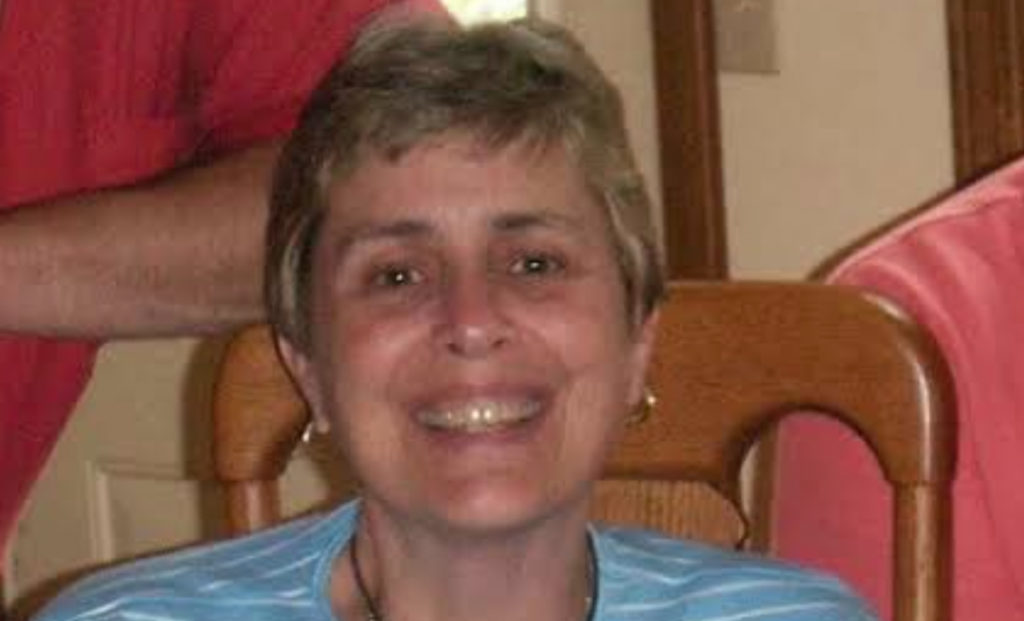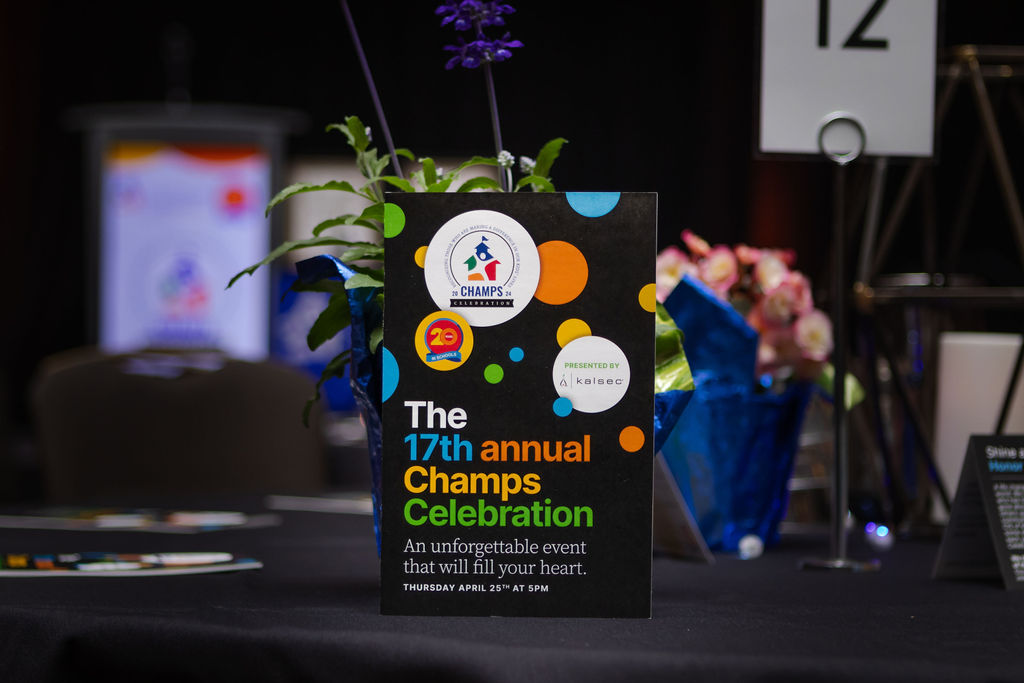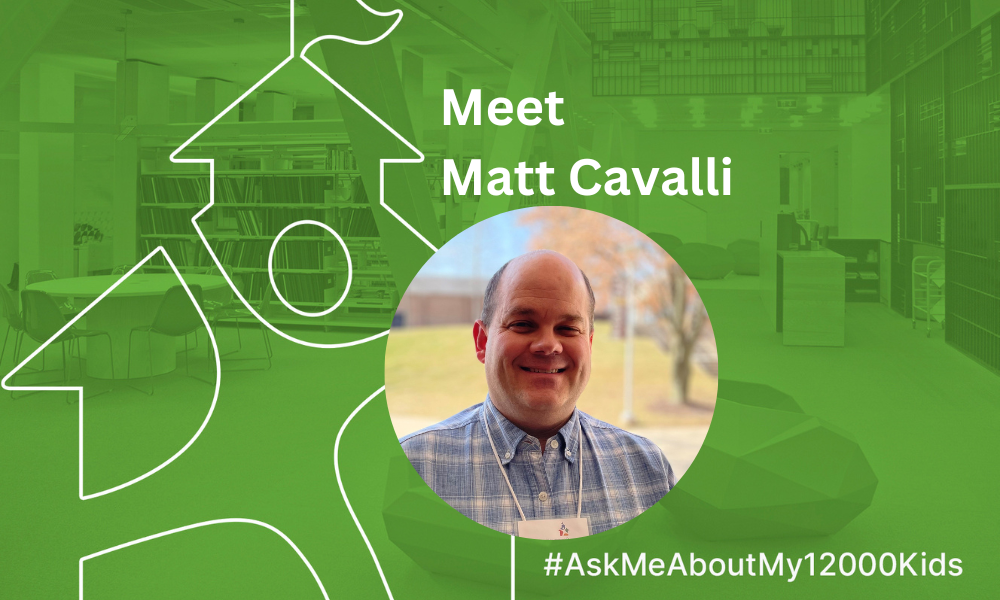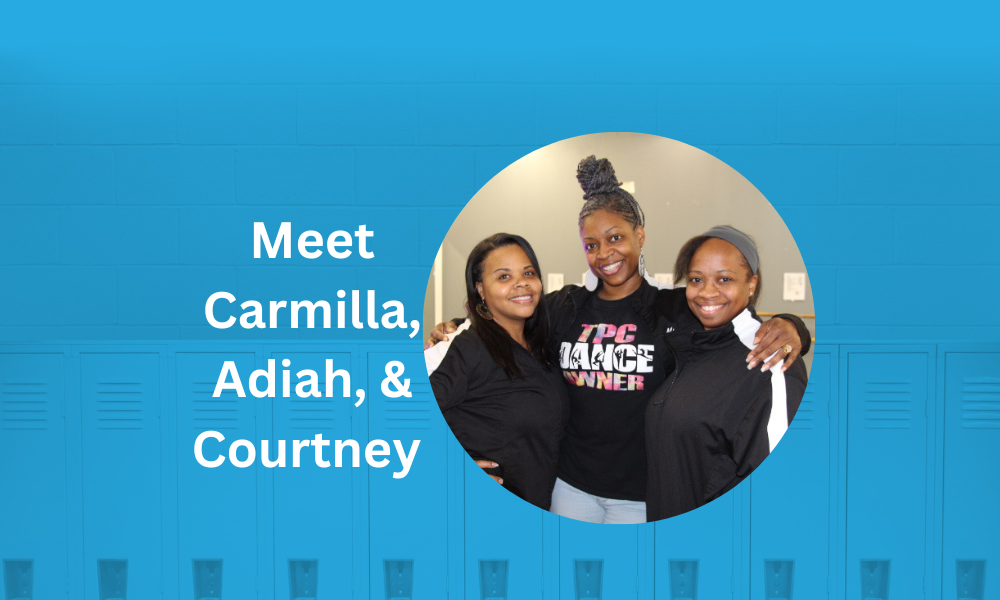
Welcome back to the POP QUIZ! This is a regular, yet totally unexpected, feature where we ask students, parents, staff, our friends, and partners to answer a few questions about what they are learning, reading, and thinking about. Today we feature Diane Lang who was recently honored with the 2022 Diether Haenicke Promise of Excellence Award.
Born and raised along with her six other siblings in Meadville, Pennsylvania, Diane Lang always knew she wanted to teach. Since 1975, she’s called Kalamazoo her home. “I feel so lucky to have found Kalamazoo,” she says. “Kalamazoo knows how important education is.”
Kalamazoo is lucky to have Diane. For more than three decades, she devoted herself to educating students in the Kalamazoo Public Schools. As a math teacher at Milwood Magnet Middle School, she engaged students in work that was challenging, adventurous, and meaningful. Since retiring in 2007, she has continued to go above and beyond for kids. As a volunteer at the very school she once taught, she created a school store and engages students in learning the ins and outs of running this business. Considered a difference maker, a game changer, and a dream maker, Diane Lang has extended her reach through Communities In Schools of Kalamazoo, Pretty Lake, Kzoo Parks, and the Solstice Scholarship to empower students and help them pursue their dreams. [To learn more about Diane and her award, you can watch the 2022 Champ awards. Her award, presented by CIS Board Member Eric Wimbley (who is also CEO of Pretty Lake Camp and her former student!), is at the 1:00:29/1:17:20 mark.]
Alright, Diane: pencil out, eyes on your own paper. Good luck.
Pop Quiz
How did you transition from teaching early elementary to middle school?
I initially began teaching early elementary students. That was my plan. And then I had some opportunities to do substitute teaching with middle school students. I discovered I liked teaching that age group even more than the younger students. Twelve-year-olds don’t pee and puke on the floor. Plus, I liked their sense of humor … The more I subbed in junior high, the more I liked it … I ended up obtaining a math minor at Western Michigan University so I could teach math to middle schoolers. Principal Juanita Goodwin hired me to work at Northeastern Junior High (now Northeastern Elementary School).
Northeastern and Oakland both closed in 1980 and then I got laid off for three years. I subbed that first year … Through Kalamazoo Public Schools, I was hired to work at the Kalamazoo County Juvenile Home and did a lot of G.E.D. courses for kids and things like that. At the time, being laid off had seemed like a bad thing, but it ended up being one of the best things that could have happened to me. It led me to working with kids in the juvenile system and allowed me to see and feel what their lives were like …
Then, in 1983, KPS called me back for a teaching position at Milwood [Magnet Middle School].
You taught math all those years until you retired, right?
Yes. I retired from teaching in 2007. I’d been diagnosed with MS in 1983 and eventually I started using a motorized scooter. Heat affects MS and by the end of the day, I was really draggy. Looking back on it, my MS was a good thing. Otherwise, I’d still be teaching there! I would have been one of those people that others would have said, Somebody better tell her it’s time for her to stop teaching! You need new blood for kids and by retiring, I made room for that to happen. You’re welcome! You can thank MS!
Even though you retired, you never really left Milwood though, did you?
That’s right. [Diane laughs.] I told Kevin Campbell, who was principal at the time—he was an amazing principal to work with—that I didn’t want to go, that I could still do stuff but I just couldn’t be a classroom teacher anymore. Kevin said, You can run our school store. We didn’t have a school store!
So you started a school store! How did that work?
Teachers and school staff would hand out tickets to kids throughout the day when they caught to doing stuff right. I came in Monday, Wednesday, and Fridays during school lunches for all three grades. The kids could take the tickets they earned and buy stuff from the store. I stocked the store with school supplies like pens and paper. We had squeeze balls, lanyards, Milwood Magnet flashdrives, and zero food items.
Now here’s the beauty of what that store did for me, and for what I hoped did for the school. I got to pick which kids could help me—and I needed that help. The kids I picked weren’t connected with other school activities. They didn’t sit with anyone at lunch. They weren’t on the football team. They weren’t on this or that. And these kids were great. We got to spend time together talking, working together on ordering and giving out supplies. I was told their attendance was better on Mondays, Wednesdays, and Fridays because they were invested in the work.
What has been so cool about it is that kids would come up to the window to buy something and they see that kid and say, Hey, how’d you get to work here? Those kids became somebody. These kids saw themselves in a new light and others started seeing them in a different way too.
It sounds like even though you retired, you have continued to teach, only in a different way over these last, what, fifteen years?
I’ve been volunteering at Milwood since retiring. The principal now, Mitch Hawkins, is fantastic and has been supportive of the school store as well. Since the pandemic, I haven’t been back in the school. I hope to return soon.
You are a life-long learning. What is something surprising you learned in “retirement?”
I’ve learned that I’m lucky to have done what I have done and where I have done it. I feel badly for people who retire and still want to do things but are not in touch with those people, those organizations and places who could use their experience. That’s what I’m learning. How lucky am I?
How lucky am I? That seems to be your mantra!
Maybe I’m lucky because I don’t golf. So two things I’m lucky with: I don’t golf and I have MS. That has led me to be involved and do all this great stuff I might not otherwise have done!
You have inspired countless young people throughout your career and retirement. Can you throw some teacherly wisdom at us?
I think about the way I used to start every school year, I would always try to not tell people what to do and instead be on their same level and meet them where they are. So, often, I’d say to the kids something to the effect of, You don’t know happen to me last night and I don’t know what happened to you. You don’t have to like me. I don’t have to like you. But we need to respect each other and listen to each other.
If I can make my classroom a place that is comfortable and we can share, we can figure anything out. This is our school, I’d remind kids. If we want to change something, we can. Don’t blame a situation you’re mad about on anybody else …
I don’t want to be one of those people who tell other people what to do. I want us to figure out how we can arrive at a solution together. Where do we want to go? What do we need to do to get there? We can get there by listening to each other and figuring it out together.
That’s part of the beautiful thing about teaching math. I had students show me their work. Not because I was trying to be mean or catch them at something. I love it when we make a mistake. Because then we can figure out how to fix it.
So many people fear making mistakes. You seem to relish mistakes!
Because then we can fix it! If you get all the right answers, then you don’t learn how to fix things, in math or life. And if you are getting everything right, then you’re in the wrong class. [Diane laughs.] Math is everybody’s least favorite subject and yet it’s the perfect opportunity to find out what you did wrong. And once you can figure that out, that’s when you start to learn and grow.
You’ve been a strong advocate and friend of CIS for years, since at least 2003. Why CIS?
I think the passion I have for CIS is because it’s at the bottom of what I want to be able to do. When the Kalamazoo Promise was announced, I remember thinking, How cool is that? And then I thought, You know, you don’t have to have a lot of money to make a difference. You just need to know where to go with what you care about. So that’s when I connected with CIS those many years ago and decided to put this Lang Family Fund together so that every kid could do what other kids could do. For instance, I wanted to make sure that those kids who wanted to do ski club but whose family couldn’t cover the cost associated with ski club, could do ski club. Or a kid, like the one I had been tutoring who needed special dental care, could receive that care. And I think about that kid who wanted to try for an internship but needed a suit for the interview. I mean, give me a break! If a suit is standing in your way of being successful, let’s get that kid a suit! That fund, my mother, my sister-in-law, we’ve all put into it to help with those gaps. That, to me, is what Communities In Schools does. It allows us to pool our resources and level the playing field for kids. Like CIS, I want every kid to have the opportunity to do the same things as every other kid. I’m just so lucky to know and have connected with Communities In Schools.
Communities In Schools is exactly what I want to be part of: helping every kid be on an equal playing field. If we can remove obstacles and get everybody there on that same field, they can discover their strengths and interests and be empowered to choose to take it wherever they want.
What are you currently reading?
Carl Hiaasen is my favorite author. He’s a political satirist and retired from Miami Herald. He does both kids books like Hoot, and really funny, satirical books for grownups like Bad Monkey.
What is a question you recently asked or perhaps have been asking a lot lately?
What’s life going to be like—not once Covid is gone, because it’s not going to be gone—but what will life look like? For me, I’m hoping to get back into volunteering in-person at Milwood. I’ll hang around there as long as they will have me! But I wonder about the school’s comfort level and what that volunteer work will look like as the virus situation and guidelines change frequently.
Do you have an update for us on your former student JacQuese Steele? [We featured this 2008 Loy Norrix High School graduate in the 2015 post, “Doing What it Takes to Get Her Promise Back.”]
JacQuese graduated! She got her Bachelor of Fine Arts in Theater from Michigan State University!
That is fantastic! She is one talented young woman. And speaking of former students, one of your other students, Stacy Jackson [and a former CIS after school coordinator who is currently an associate with ONEplace at the Kalamazoo Public Library], said that you taught her that “hard things don’t have to be hard.”
Stacy was talking about your approach to math. But in thinking about how you have taken up your MS—something that is hard, yet you don’t seem to take it up as hard—well, it sounds like you are one of those rare individuals who takes your own advice!
[Diane laughs.] Sometimes bad things happen and it’s a good thing, whether it’s MS or getting laid off and wondering what am I going to do now? I also knew I had my family and that if I couldn’t make my rent or whatever, I knew they were there for me. And that’s what I’ve been allowed to do now, to be there for others.
Thank you, Diane, for hanging out with us at Ask Me About My 12,000 Kids.
Tags: CIS, Communities In Schools of Kalamazoo, Diane Lang, Diether Haenicke Promise of Excellence Award, Eric Wimbley, Kalamazoo Public Schools, Kevin Campbell, Kzoo Parks, Milwood Magnet Middle School, Mitch Hawkins, Pretty Lake Camp, Solstice Scholarship, Stacy Jackson




